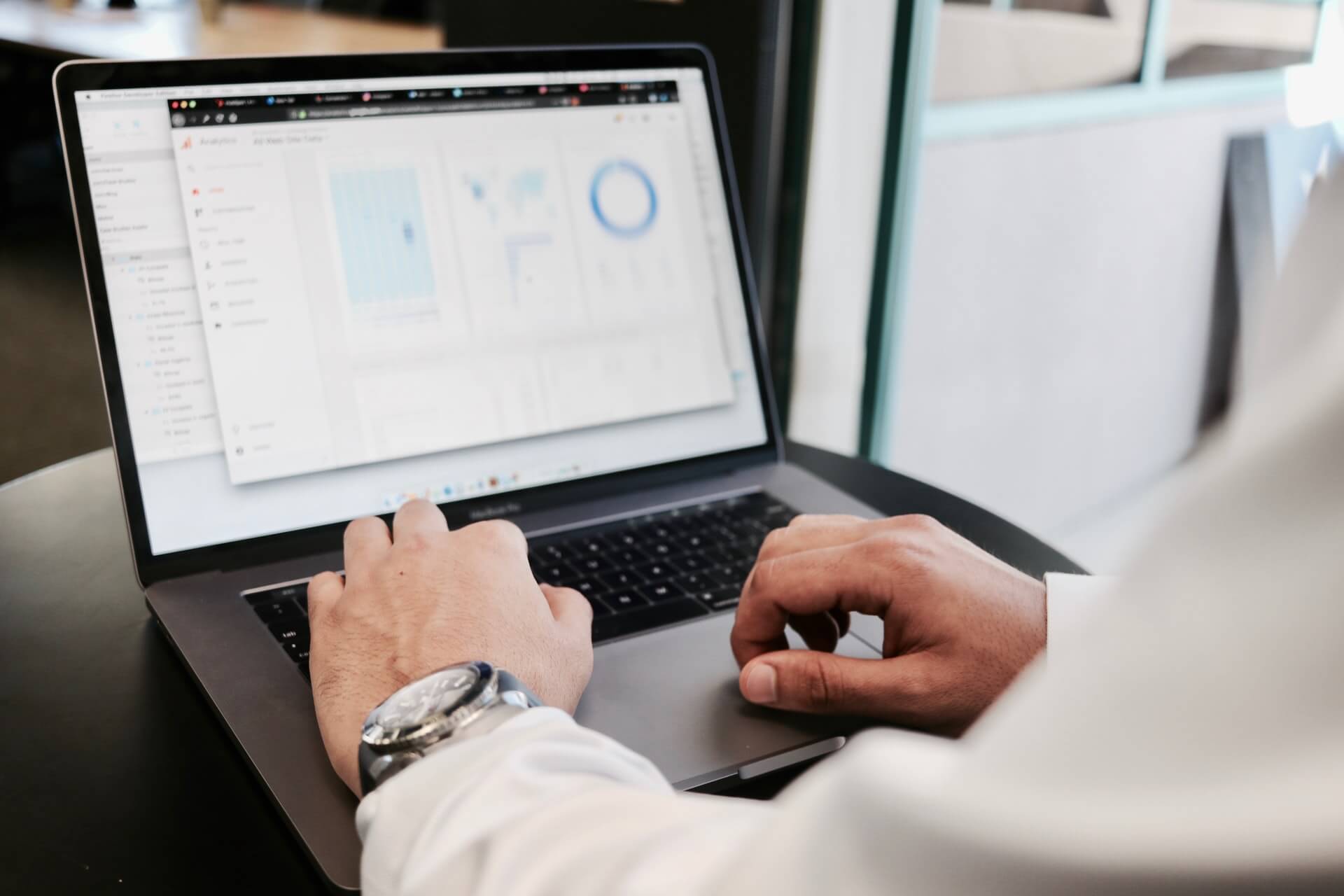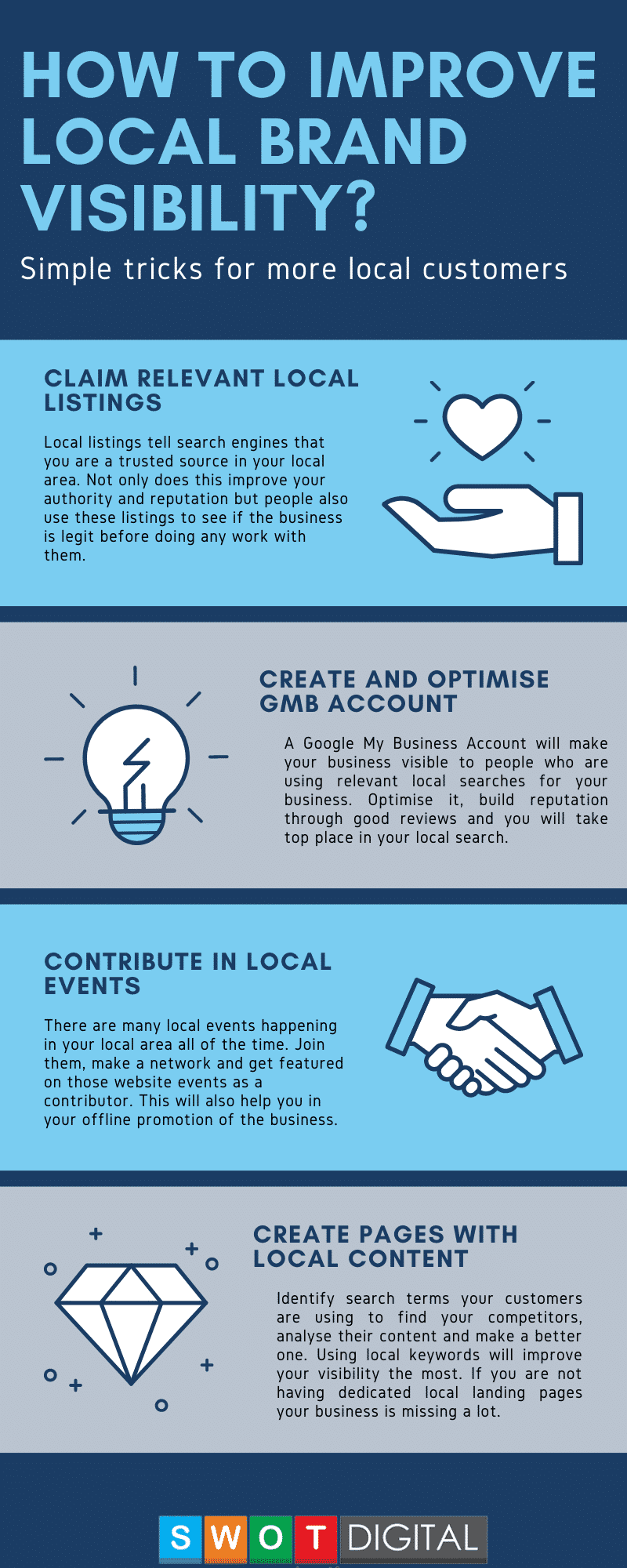
Local search optimisation is one of the key elements of a successful SEO strategy for local businesses. If you are just starting out or want to expand your business into other regions or simply want to dominate a specific city where your business is located this is a way to do it. In this article we will walk you through key steps that you need to take in order to improve your websites local visibility.
WHICH businessES should be using Local SEO?
The answer is every local business. Any business that is dependent on local customers such as restaurants, retail shops, banks, travel agents, solicitors, clinics and other industries should consider local SEO for their business.
But before we start, let’s take a look at how Google local search actually works in the first place. By understanding how it works and what is important we can better adapt to its algorithm and outrank other local competition.
Google modified its search results years ago for local queries and improved it in its Possum core update. This means that if a person from a specific city searches for a specific product, Google will provide results in return that are the closest ones to that person’s location, most relevant and have decent authority already. This facilitates people quickly finding a solution to the search they made that is in close proximity to them.
The big challenge for businesses wanting to be found in Google local search is when there are a number of businesses in that location offering similar products and services will simply not be listed there, unless a visitor opens it and scrolls down your local business will not be found.
Local search takes a big part of searches and is well known for much higher buying intent. If people are searching locally they probably want to go somewhere and spend their money while broader searches are mostly for informative and educational content where people are simply curious to find something out and not buy.
Local SEO | Citations & How to Build Them
Citations are known as an online reference for your business containing your business name, phone and address, some websites even allow links to your website. This is a great way to put your business out there as the first step. Not only do most citations provide do-follow backlinks which increases overall authority of your website and helps it rank for other keywords, it also gives a clear signal to search engines that your business is trustworthy and legit. Some people use these types of listing platforms to find your website and do business with you.
How to find good citations for your website?
In order to find citations that can help your business, the main trick is to list your website on listings that are close to your operating location for local services. This means that if your business is located in Dublin, Ireland, you will need to find local directories to you, where you can submit your website.
This involves doing comprehensive research of local directories. Usually this is done by specific Google search commands such as intitle: ‘’submit your website’’, ‘’directories’’, ‘’list your website’’, ‘’local directories’’ and so on. To back this up you can add specific country or city and Google will return you all results that under page title have those exact words. This narrows down the search and gives you the ability to find related directories faster.
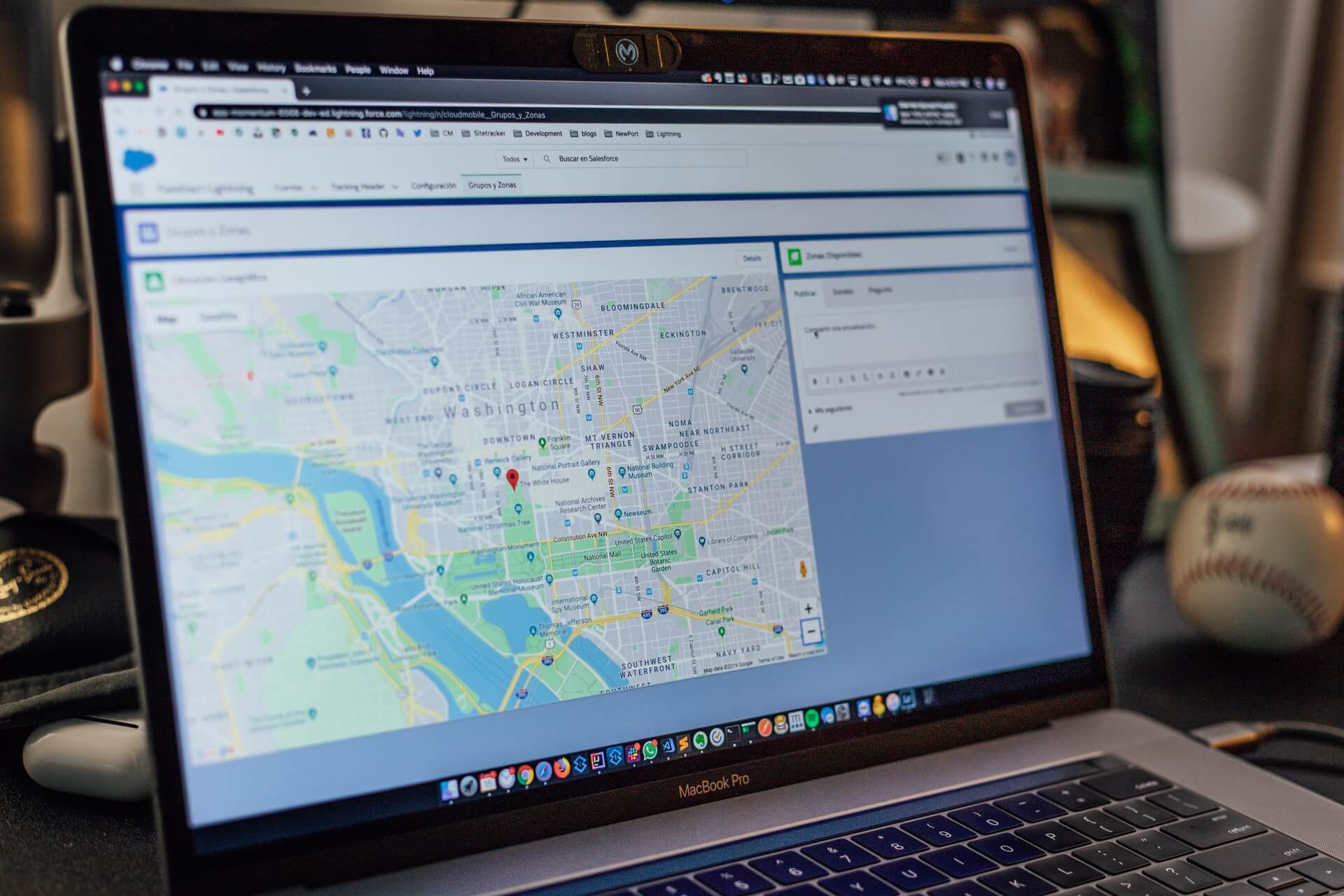
WHICH citations will work for my website?
Start off by building relevant citations to your niche. If your business is in the motor industry search for directories that are all about vehicles. With the increase of relevant backlinks from listings this also gives signals to search engines that your niche is all about cars and that you should have better positions for such keywords.
How to optimise citations for best visibility?
Each listing needs to have an accurate NAP. NAP stands for name, address and phone. These are three elements that are very important for citations. By being consistent with this information is a positive ranking factor. When you start off with citations make sure to use the phone number that you plan to keep. Most businesses often change phone numbers, locations or even name and this all impacts on your local SEO score. When building citations you will often be requested to add your website logo, short description, long description and a link to your website. Take your time and fill out all necessary information as it will make your listing more trustworthy to potential customers and search engines.
Add GEOtag to Your Images
Most local businesses, particularly those that sell online ( e-commerce ) get significant traffic to their website from image search. In order to have your photos ranking in first places you need to work on several ranking factors.
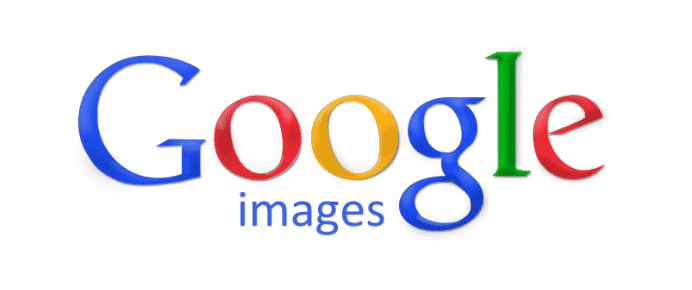
- Add local keywords into your picture name
- Use local keywords as your photo alt tag
- Consider adding captions under your photo to better explain your photos
- Add GEOtag to your photos
Even if you don’t optimise your photos for Google it will still know what is in the photo as search engines can identify what a photo is about by searching similar photos and showing them together. By adding local keywords and alt tags gives photos a ranking boost in image search. Sometimes these photos can even appear in regular search if the intent of the user is to find photos.
In order to maximise your visibility adding GEOtags is a must. Not a lot of local SEO agencies know how to do this as it is time consuming but this is an effective way to be one step closer to the first place. Using the website for GEOtag you can add locations to the image that search engines can read. This microdata is not visible to regular visitors and it will not change your photo in a visible way to visitors.
How does the Possum impact on your local rankings?
Possum was introduced by Google years ago and it is crucial to understand how it works in order to know the chances of ranking in specific locations as Google is filtering searches now based on address and affiliation. There are 3 things to consider here – proximity, relevance and prominence.

- Proximity means how close your business is to the person that is searching it
- Relevance means how close your business is relevant to specific local term
- Prominence means how much authority your business have and is it established brand
By understanding these 3 factors we can create working local SEO strategies for specific locations. To do so we need to do comprehensive keyword research for local terms.
Understanding how local keywords work?
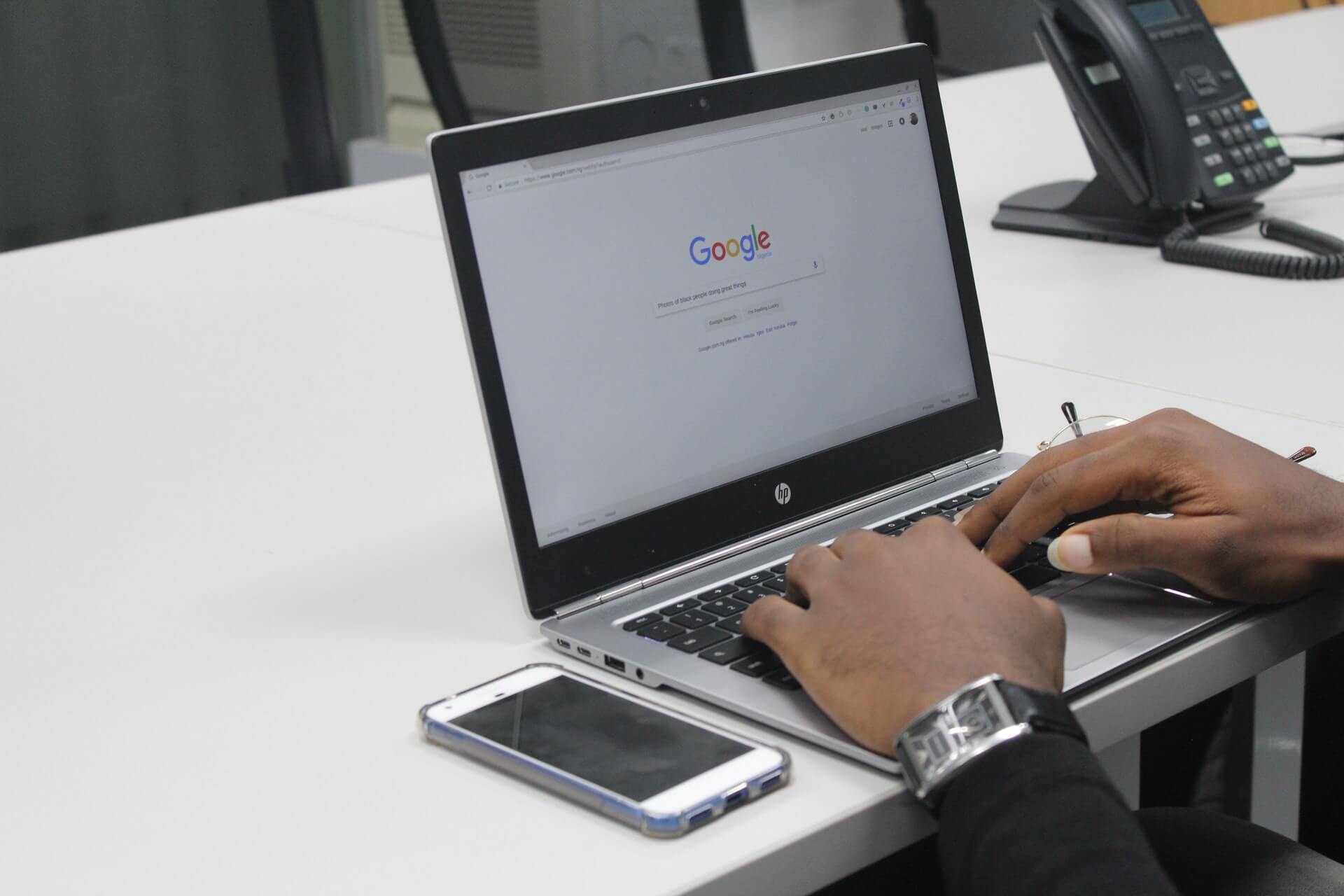
There are different search terms people use to find your business depending on their needs and industry. Some examples can be found below:
[ service ] in [ location ]
[ which ] delivery [ near me ]
[ where to ] find [ business ]
[ nearest ] [ restaurant ]
[ best ] [ Dublin ] [restaurant ]
Understanding local search intent is a key step for successful local rankings. If you are already an established business and already have traffic to your website we advise to check Google Search Console. This is a free tool that will help you better understand the intent of visitors behind those queries so that you can adopt and see what spots are missing and where an opportunity is.
Does domain TLD have an effect on local rankings?
Even though there is no clear answer from Google on the effectiveness when it comes to different domain TLDs there is a logical point of view that it makes sense for Google to favour more specific country domains if the person is searching from a such country than to return .com or domains from other countries. Even though this happens these scenarios are very rare on a local basis.
How does your hosting affect local rankings?
This is not an official ranking factor but this is sure to impact on your local rankings. Why? The main reason for this is that every website in order to work needs to have a server hosting it. This server receives data from visitors, sends them to your website and gets that information back to the person searching. Depending on the location of the server, if this distance is significant it takes a lot longer for your website to load to the client. How to avoid this? Try to find a local hosting provider in your area with a server that is nearby your location. With proper speed optimisation your website can load in a blink of an eye. We know that Google favours faster websites compared to websites with technical issues and longer load times. Not only can this can help you with local rankings but it also helps you with increased conversion rates. Websites with an average speed of 2.4 seconds had a 2.9% conversion rate while websites with an average speed of 5.7 seconds had only a 0.6% conversion rate. This is a good indicator of how loading time can affect conversion rates on your website.
How to use Google My Business account for Local SEO?
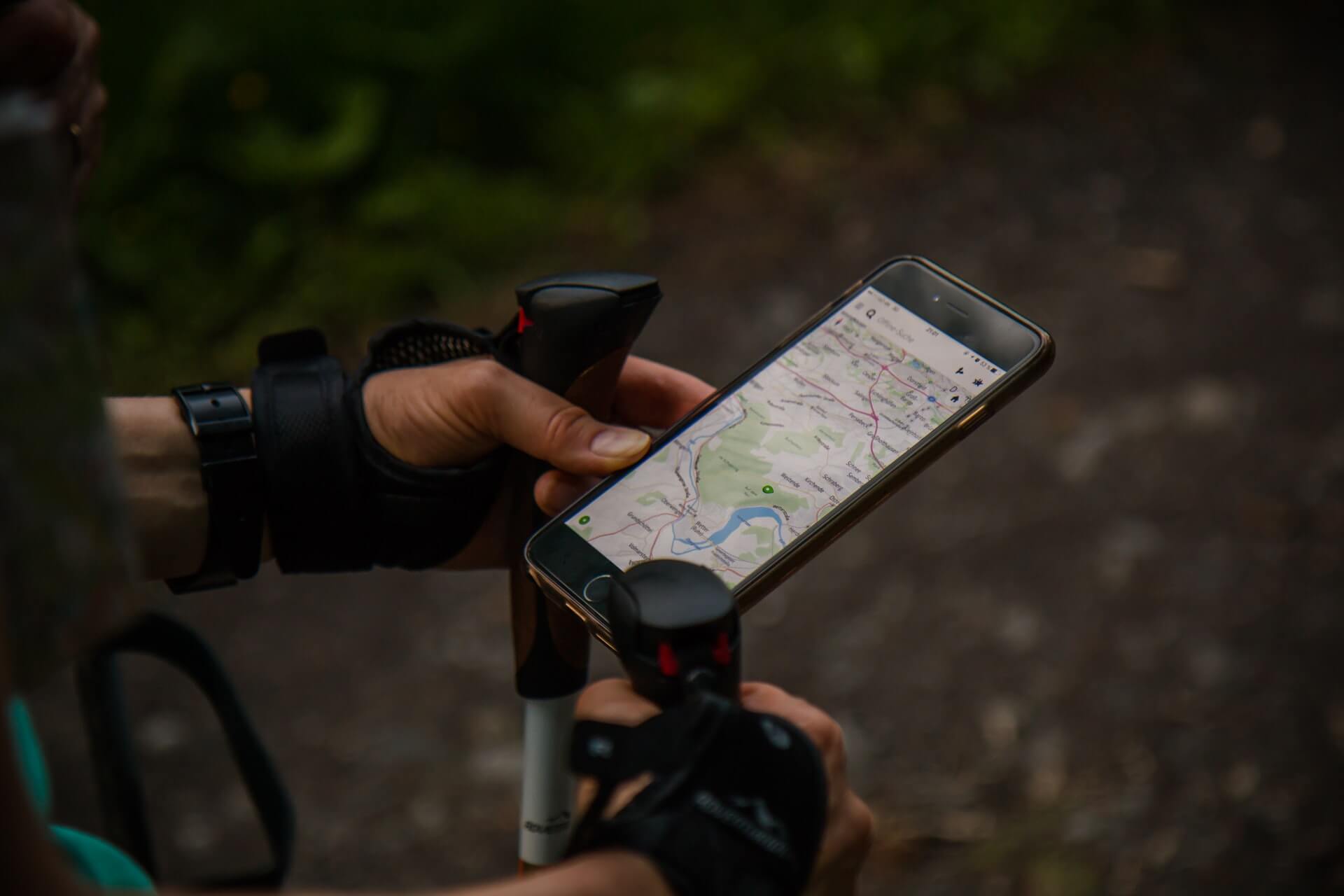
Google My Business ( GMB ) is a free platform made by Google which enables you to list your business on Google Maps. How does it work? When setting up the account for the first time you will need to add your business name, working hours, website link, phone number and most importantly your name and your business address.
You can create a listing for free but listings that are verified have a bigger trust score and rank better on the map results. We saw that a month ago Google actually started removing listings that are staying unverified on maps. To verify your account Google will send a postcard via post containing a short PIN number that will verify your listing it, it can take anywhere from 5-14 days depending on the country your business is located. Keep in mind that you may experience a delay due to the Coronavirus pandemic.
Why should you use Google My Business?
The answer is simple, Google Maps pack when triggered on specific local searches will give prominent high first page rankings. This can lead to websites who are struggling to ranking highly in competitive spaces to appear high on the first page within the Google Map pack. This means that if your business is relying on maps to get leads, which works great for restaurants you are getting free customers to your business for a lot less effort. But it’s not that simple.
What are the ranking factors for Google My Business?
- Assign the right category for your business, note that you can add more, but one will be the primary.
- Add relevant photos of your business, both interior and exterior. Make sure that these photos are good quality, matching the dimensions for the GMB cover photo size and other logo dimensions.
- Add photos of your team and customers, if this is a public space people will get an idea on how it looks on a regular basis to determine if they want to come by.
- Upload 360 video views of your store inside. Note that this requires a special camera.
- Claim your business location. Sometimes these postcards get lost and you need to submit details for a new one.
- Work on your positive reputation and reply back to the customers. Positive feedback from customers is very important for an online business as more than 80% of the people first check business reputation before doing any business with them. The more 5 star reviews you have the better visitors will convert into customers.
- Try to acquire more local backlinks from your area. Simply get to know your area, which events are being held, can you participate in any to get a backlink from those websites. Start contributing to local causes and you will be rewarded.
- Post frequently on your GMB account. You can post for a week using your GMB account. Using this option you can share new offers, articles and have people to visit you.
- Consider running paid ads on Google Maps to increase awareness and get returning visitors to your listing organically.
- Use accurate location details and pins.
- Avoid duplicate listings of the same location. This is a rare situation but happens to multiple businesses who are constantly changing their marketing agencies. Because of lost access to one location, agencies tend to open another location making things worse. As a business owner it is important to consult first with a local SEO specialist.
Consult With SWOT Digital | Local Dublin SEO agency
If you are looking for a Dublin SEO agency that will take your local SEO to the next level and have an expert team backed up with successful projects, case studies, positive client testimonials, SWOT Digital is the agency for you. Fill out our contact form and receive a free local SEO audit. Get in touch with our Dublin SEO consultant team today and start working on your local SEO strategy today. Let’s talk about SEO!
